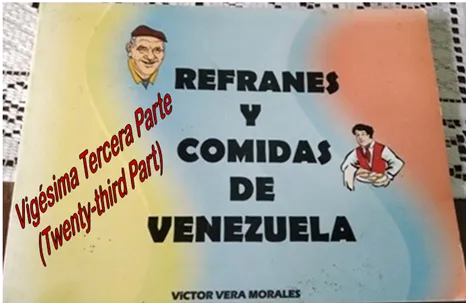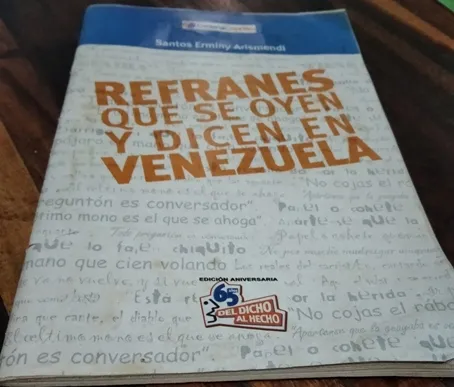

Las gallinas son famosas por comerse cuanto insecto divisan en su camino, y siendo las cucarachas insectos, obviamente no se sentirán cómodas estando en una reunión o baile de gallinas, pues lo más seguro es que serán engullidas por una de estas aves; así que este refrán denota peligro y temor ante una situación, o también, que la persona está fuera de lugar en una determinada circunstancia o sitio, se utiliza indicar que está incómoda o inquieta.
Este refrán se refiere a que la mejor prédica proviene de la persona cuya vida, cuyos actos son ejemplo y prueba de que es un individuo coherente. De nada sirve estar predicando y hablando respecto a cómo debe vivir la gente, si lo que se dice es totalmente diferente a lo que se hace. Es similar a la frase que dijo Jesucristo: “Por sus obras los conoceréis.”
Este dicho se aplica cuando las personas hacen comentarios respecto a que una situación negativa pudiera haberse evitado, si los involucrados en la misma hubieran hecho alguna cosa específica; e indica, que este tipo de comentarios es inútil y fuera de lugar, pues ya ha ocurrido el evento negativo.
Un refrán que aconseja la prudencia en las personas, pues en toda relación debe haber reciprocidad, y ha de existir la bidireccionalidad en las relaciones, pues si se va a exigir también se tiene que dar algo a cambio.
Se aplica a esas personas a quienes les gustan la confrontación, los problemas, especialmente a los buscadores de pleitos y peleas, pues obviamente conseguirán eso como resultado.



Chickens are famous for eating whatever insects they see on their way, and being cockroaches insects, obviously they will not feel comfortable being in a meeting or dance of chickens, since it is most likely that they will be swallowed by one of these birds; so this saying denotes danger and fear in a situation, or also, that the person is out of place in a certain circumstance or place, it is used to indicate that he is uncomfortable or restless.
This saying refers to the fact that the best preaching comes from the person whose life, whose acts are an example and proof that he is a coherent individual. It is useless to be preaching and talking about how people should live, if what is said is totally different from what is done. It is similar to the phrase that Jesus Christ said: “By their works you will know them.”
This saying applies when people make comments that a negative situation could have been avoided if those involved in it had done something specific; and indicates that this type of comment is useless and out of place, since the negative event has already occurred.
A saying that advises prudence in people, because in every relationship there must be reciprocity, and there must be bidirectionality in relationships, because if it is going to be demanded, something must also be given in return.
It applies to those people who like confrontation, trouble, especially seekers of fights and fights, because obviously they will get that as a result (brollo = trouble).

Dear readers, below I place the links of the first twenty one posts, in case you want to read them:
Víctor Vera Morales. (Agosto 2004). Refranes y Comidas de Venezuela. Editado por el Instituto Municipal de Publicaciones de la Alcaldía de Caracas.
Santos Erminy Arismendi. (2006). Refranes que se oyen y dicen en Venezuela. Cadena Capriles, Caracas. Venezuela.
- Fotos de mi autoría, tomada con un teléfono REDMI 8A, intervenida con WordArt / Photos of my authorship, taken with a REDMI 8A telephone, intervened with WordArt.
- Los diseños incluidos en esta publicación, han sido elaborados por mi persona con la aplicación CANVA / The designs included in this publication has been made by me with the CANVA application.
In the event that it is required to use the content or images of this post and my other publications, I would be grateful if my authorship (Fabiola Martínez) was made and the corresponding link was cited. Thank you.

 CommunityIIDiscord
CommunityIIDiscord